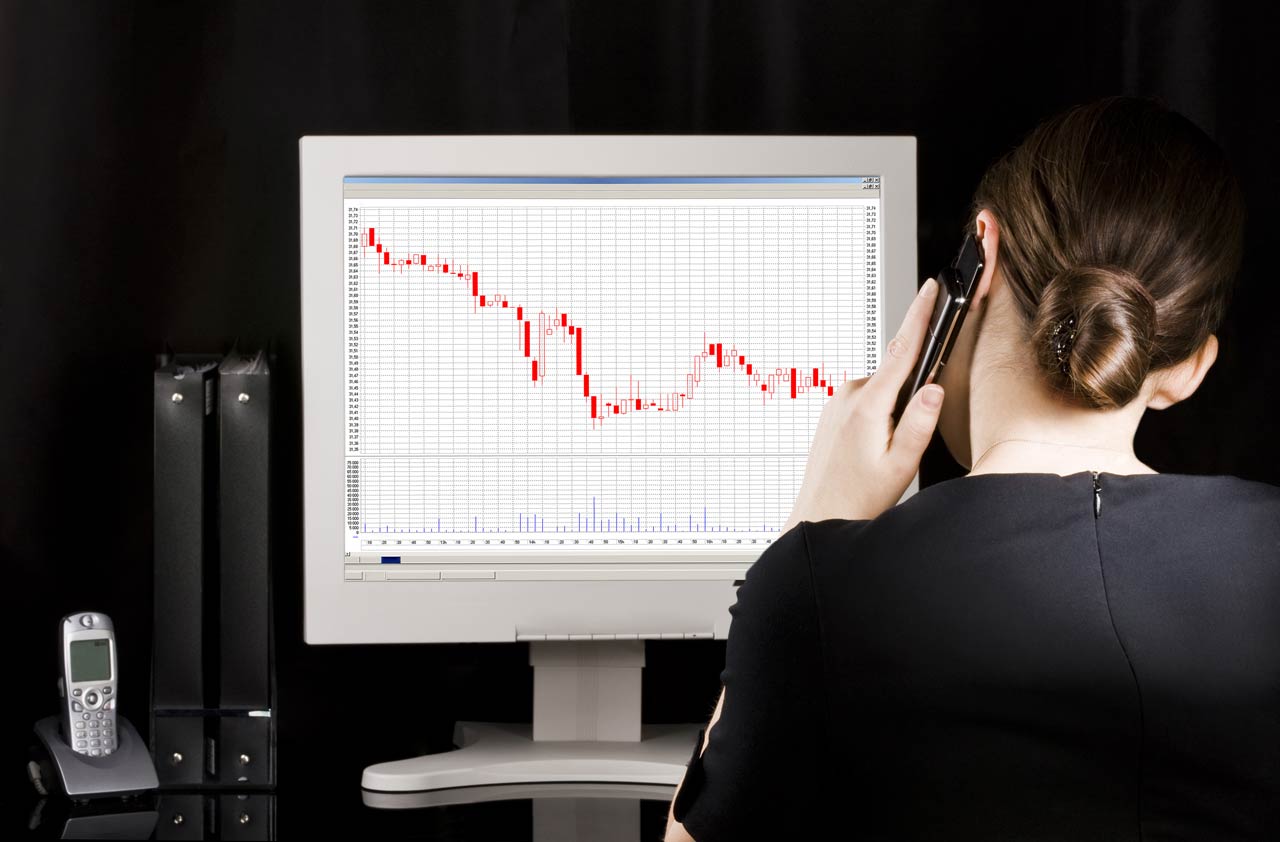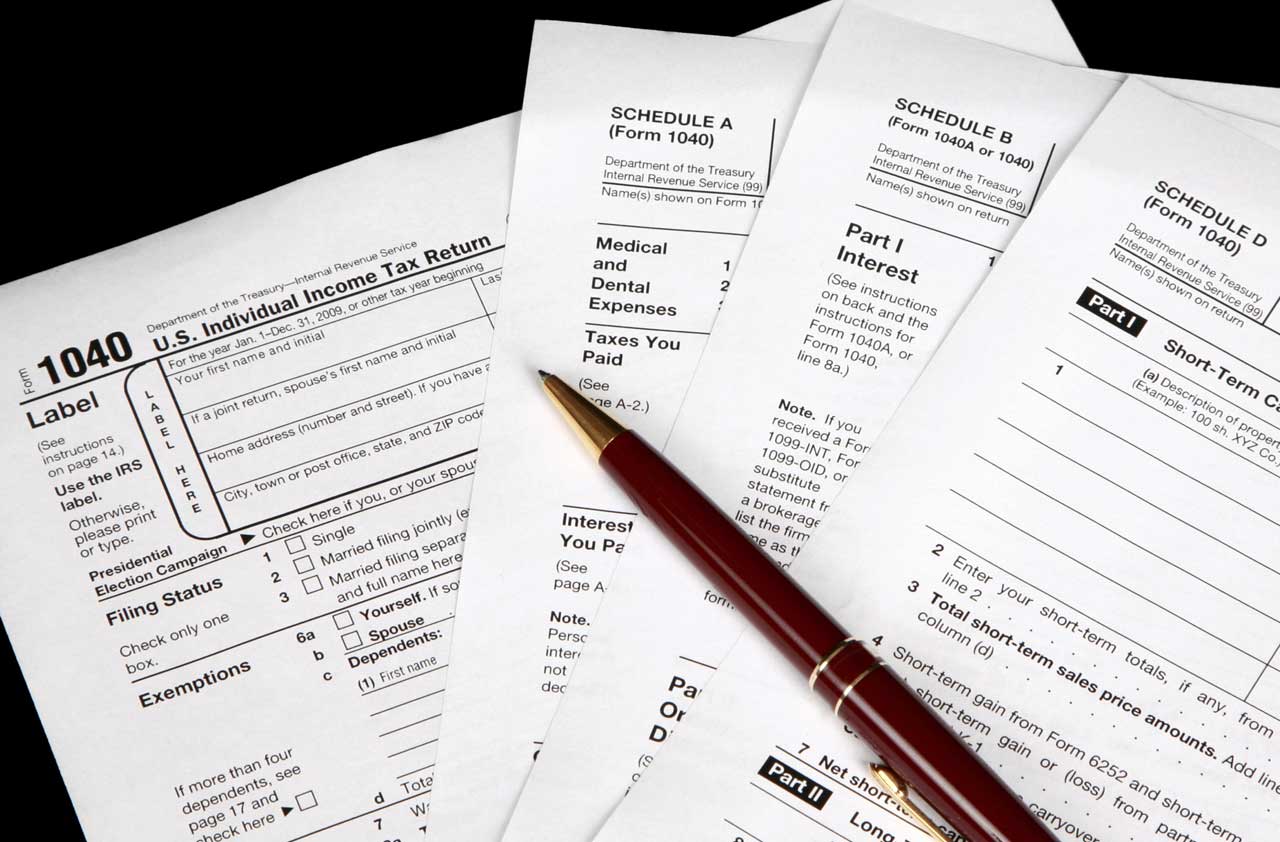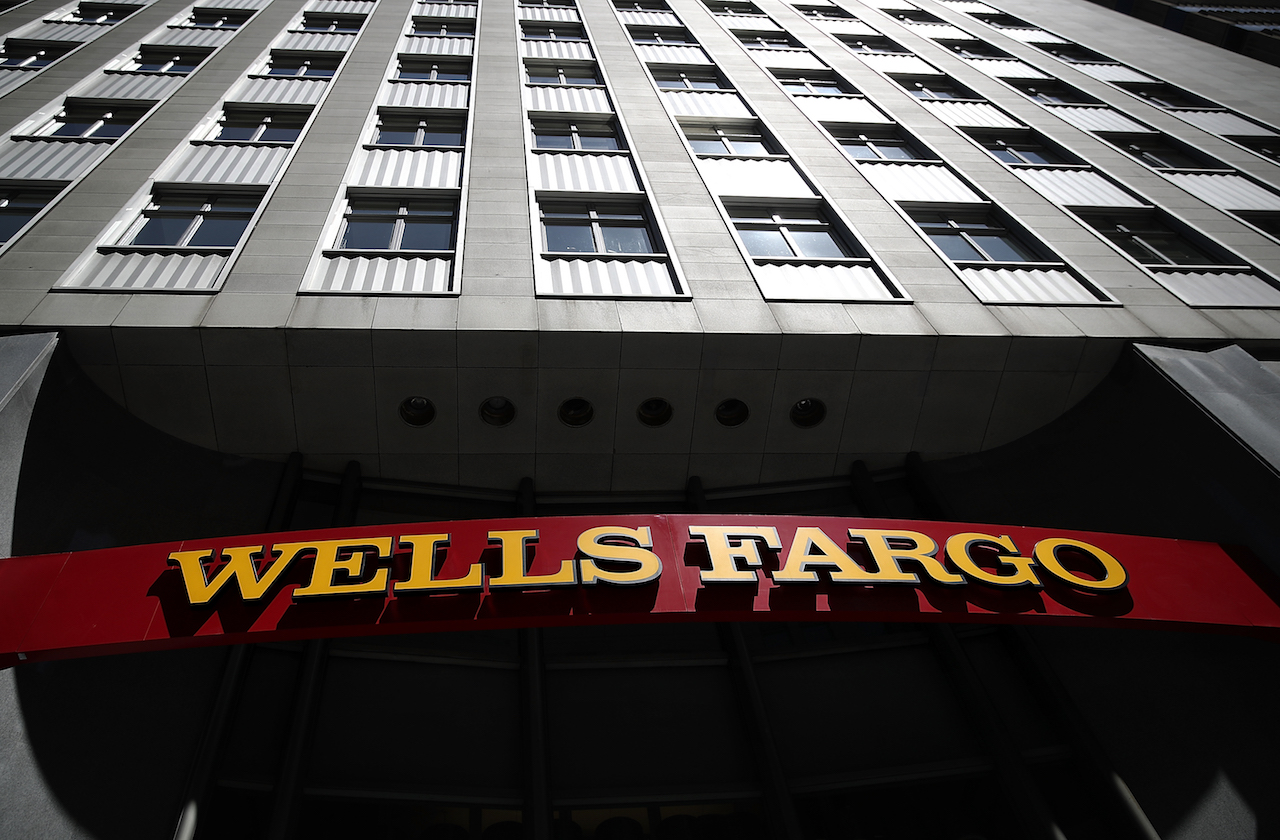8 Biggest Mistakes Investors Make
In the stock market, as in life, nothing is certain.

Profit and prosper with the best of Kiplinger's advice on investing, taxes, retirement, personal finance and much more. Delivered daily. Enter your email in the box and click Sign Me Up.
You are now subscribed
Your newsletter sign-up was successful
Want to add more newsletters?

Delivered daily
Kiplinger Today
Profit and prosper with the best of Kiplinger's advice on investing, taxes, retirement, personal finance and much more delivered daily. Smart money moves start here.

Sent five days a week
Kiplinger A Step Ahead
Get practical help to make better financial decisions in your everyday life, from spending to savings on top deals.

Delivered daily
Kiplinger Closing Bell
Get today's biggest financial and investing headlines delivered to your inbox every day the U.S. stock market is open.

Sent twice a week
Kiplinger Adviser Intel
Financial pros across the country share best practices and fresh tactics to preserve and grow your wealth.

Delivered weekly
Kiplinger Tax Tips
Trim your federal and state tax bills with practical tax-planning and tax-cutting strategies.

Sent twice a week
Kiplinger Retirement Tips
Your twice-a-week guide to planning and enjoying a financially secure and richly rewarding retirement

Sent bimonthly.
Kiplinger Adviser Angle
Insights for advisers, wealth managers and other financial professionals.

Sent twice a week
Kiplinger Investing Weekly
Your twice-a-week roundup of promising stocks, funds, companies and industries you should consider, ones you should avoid, and why.

Sent weekly for six weeks
Kiplinger Invest for Retirement
Your step-by-step six-part series on how to invest for retirement, from devising a successful strategy to exactly which investments to choose.
In the stock market, as in life, nothing is certain. The vast opportunities for creating wealth by investing come with plenty of risks, such as the 2008-2009 stock market collapse and plenty of sharp contractions since.
Mistakes? Investor, behold thyself. Here are the most common investing screw-ups, along with advice on how to avoid them.
At Kiplinger, we believe everyone, whether you're just beginning a career or already enjoying retirement, can earn solid returns in the stock market. The keys are starting early, building a balanced portfolio, making regular contributions over the long term and, above all, recognizing the pitfalls. Beware costly missteps and you can profit handsomely for years to come.

Freaking Out in Market Drops
Wall Street can be a perilous place when the bear is loose. This is not new. Three centuries ago, when scientist Isaac Newton lost a fortune in the "South Seas" stock collapse, he lamented: "I can calculate the movement of the stars, but not the madness of men." Too bad he wasn't around to read the advice of Kiplinger columnist James Glassman, looking back on a more recent debacle: the 2008-09 market meltdown. The Dow lost half its value in less than a year. Millions of investors saw billions of dollars in assets disappear. Just as Sir Isaac had done, many investors pulled out at the worst possible time—the bottom.
Yet five years from that 2009 market bottom, the Dow is up roughly 10,000 points to a record 16,000-plus. Patient investors were the winners. Notes Glassman: "Making money in the stock market is hard not because finding great companies is difficult but because the best and easiest-to-understand strategy for winning is so difficult to adhere to. That strategy can be described in three words: buy and hold."
For more, read 5 Tactics That Help Patient Investors Prosper.

Getting Swept Up in Market Euphoria
That "dizzy, dancing way that you feel" that Joni Mitchell sang about in the '60s? Investors get it, too. It happened in the "roaring'" 1920s, in the dot-com stock run-up in the 1990s, and even as recently as 2013, when the Dow Jones industrial average and Standard & Poor's 500-stock index each jumped almost 30% in one year. Whoopee! Investors big and small have the urge to pump money into "hot" stocks, fantasizing about future treasure.
But know this: The only thing certain is that markets go up or markets go down, in no knowable pattern year to year. There have been whole decades, such as the 1980s and 1990s, when the Dow performed spectacularly. Then there were the 2000s, the so-called Lost Decade, when the stock market was no better off after ten years. But over the course of a lifetime, here's the big picture from Kiplinger's Kathy Kristof: "In the 87 years that Morningstar's Ibbotson unit has tracked market history, big-company stocks have returned just under 10% annualized." Let history be your guide.
For more, read History Says Stick With Stocks.

Trading Too Frequently
Making trades based on minute-to-minute monitoring of cable business news or chat rooms for day traders isn't investing; it's speculation. And speculation is a surefire recipe for inferior returns. Yes, some people make money on the spot. But over the long term, does anybody ever really beat the house in Vegas?
True investing relies on contributing regular amounts at regular intervals, in both rising and falling markets, to a thoroughly researched, diversified portfolio of stocks, funds and bonds, says our editor-in-chief, Knight Kiplinger. Real investors give their assets a chance to perform over years, not minutes, adjusting allocations quarterly or annually (more on that later). How long should you stick with an investment? Let Warren Buffett be your guide: "When we own portions of outstanding businesses with outstanding managements," he wrote in a now-famous 1988 chairman's letter to Berkshire Hathaway shareholders, "our favorite holding period is forever."
For more, read Knight Kiplinger's manifesto for investors.

Putting All Your Eggs in One Basket
There's no such thing as the perfect investment. All stocks carry risks. Funds that bundle stocks can lessen the risk, cushioning sharp downturns but muting spikes as well. Bonds can offset stock losses, but over long periods bond returns trail the returns of the stock market.
Kiplinger's advice: Make sure your retirement or college savings funds are grounded in a portfolio that holds an array of assets. As senior editor Anne Kates Smith notes, over time a diversified portfolio provides the best combination of reasonable returns with bearable volatility. Researchers at fund company T. Rowe Price compared the returns of portfolios that varied from 100% bonds to 100% stocks with various combinations of stocks, bonds and cash. From 1985 through 2012, a portfolio of 60% stocks, 30% bonds and 10% cash would have returned 9.8% annualized—about 93% of the return of an all-stock portfolio, but with just 62% of the risk.
For more, read How to Learn to Love Stocks Again.

Treating Your Home as an Investment
Let's say you bought a new home ten years ago for $200,000 and sold it today for $250,000. You made $50,000 on the deal, right? Not quite. Chances are you took out a 30-year home loan to finance the purchase. Even if you put 20% down at 6%, the prevailing rate in 2004, you've been making a nearly $1,000 mortgage payment each and every month for the past decade. On top of the mortgage, there are ten years' worth of property taxes, homeowners insurance, repairs and renovations to tally up. (For a more complete rundown of homeownership costs, check out this post on the GenXFinance blog.)
Yes, mortgage interest and property taxes are tax-deductible, and you'll get a tax break on the profits when you sell. Many homeowners have seen large equity increases over decades, and many have borrowed against it. But the bottom line is: That "return" on your "investment" is more of an illusion than you'd like to think. And if real estate prices fall as they did during the Great Recession, you could end up owing more than your dwelling is worth. (Don't get us wrong: Homeownership still makes financial sense for millions of Americans. Paying down the principal is a systematic way to save money.) But consider Knight Kiplinger's advice: "I regard my home as a place to live, not as an investment. It is not a substitute for retirement savings."
For more, read A House Is Just a Home.

Failing to Rebalance Your Portfolio Regularly
Every investor is subject to the whims of the market. Here's one way to profit from the inevitable ups and downs. Let's say your portfolio is made up of mutual funds. At the end of each year (or even quarterly), consider how much you have in each fund. Then target new money to the funds that have done poorly. It might seem counterintuitive, but rebalancing keeps your portfolio diversified by preventing your wealth from becoming concentrated in a small number of investments.
Better yet, rebalance your portfolio by selling some of the winning funds and putting the proceeds into the laggards, so each fund ends up with the same percentage of money it started with the year or quarter before. This disciplined approach to investing helps ensure that you're buying lower and selling higher, which certainly beats the buy-high-sell-low trap that snares many investors. "Rebalancing takes guts—it's hard to reward losers—but it works," says Kiplinger.com columnist Steven Goldberg.
For more, read A Plan for Achieving Your Goals.

Borrowing Against Stocks
When times are good, you may find yourself tempted to borrow against the value of your stocks to buy even more stocks. The practice is enticing because returns are amplified if the stock price goes up, because you're reaping the profits from stocks you otherwise couldn't afford. Even investors with a few thousand dollars in their portfolios can qualify to borrow in this manner at some brokerage houses, through a lending process called margin. Aggressive market players, such as some hedge funds, leverage borrowed money to enrich returns for well-heeled investors.
But there is high risk in buying stocks on margin. If the value of the stocks you purchase with the borrowed money falls, you could be forced by your brokerage to sell the stocks at a loss to repay the loan—even if you still believe in the long-term prospects of the stocks. Our advice: Leave this kind of speculation to speculators. "Margin calls could force me to sell good assets at a bad time," says Knight Kiplinger.
For more, read The Basics of Investing in Stocks.

Miscalculating a Fund's Tax Basis
The tax basis of an investment helps determine how much you'll owe in taxes when you sell. Generally speaking, the tax basis, also referred to as the cost basis, is the purchase price. Subtract that from what you sell the investment for, and the difference is the amount upon which you'll be taxed. In the case of mutual funds, if like most investors you use your dividends to automatically buy extra shares, remember that each reinvestment increases your tax basis in the fund. That, in turn, reduces the taxable capital gain (or increases the tax-saving loss) when you redeem shares. Forgetting to include reinvested dividends in your basis results in double taxation of the dividends—once when they are paid out and immediately reinvested, and later when they're included in the proceeds of the sale.
This important calculation can save you a bundle. Former IRS commissioner Fred Goldberg once told Kiplinger's editorial director Kevin McCormally that missing this break costs millions of taxpayers a lot in overpaid taxes. If you're not sure what your basis is, ask the fund company for help. Funds often report to investors the tax basis of shares redeemed during the year. In fact, for the sale of shares purchased in 2012 and later years, funds must report the basis to investors and to the IRS.
For more, read The Most-Overlooked Tax Deductions.

Profit and prosper with the best of Kiplinger's advice on investing, taxes, retirement, personal finance and much more. Delivered daily. Enter your email in the box and click Sign Me Up.
-
 Here’s How to Stream the Super Bowl for Less
Here’s How to Stream the Super Bowl for LessWe'll show you the least expensive ways to stream football's biggest event.
-
 The Cost of Leaving Your Money in a Low-Rate Account
The Cost of Leaving Your Money in a Low-Rate AccountWhy parking your cash in low-yield accounts could be costing you, and smarter alternatives that preserve liquidity while boosting returns.
-
 I want to sell our beach house to retire now, but my wife wants to keep it.
I want to sell our beach house to retire now, but my wife wants to keep it.I want to sell the $610K vacation home and retire now, but my wife envisions a beach retirement in 8 years. We asked financial advisers to weigh in.
-
 Why Wells Fargo's Revenue Miss Isn't Worrying Wall Street
Why Wells Fargo's Revenue Miss Isn't Worrying Wall StreetWells Fargo is one of the best S&P 500 stocks Wednesday even after the big bank's top-line miss. Here's what you need to know.
-
 Constellation Energy Stock Soars on Its $26 Billion Buy. Here's Why Wall Street Likes the Deal
Constellation Energy Stock Soars on Its $26 Billion Buy. Here's Why Wall Street Likes the DealConstellation Energy is one of the best S&P 500 stocks Friday after the utility said it will buy Calpine in a cash-and-stock deal valued at $26 billion.
-
 The 24 Cheapest Places To Retire in the US
The 24 Cheapest Places To Retire in the USWhen you're trying to balance a fixed income with an enjoyable retirement, the cost of living is a crucial factor to consider. Is your city the best?
-
 What Scott Bessent's Treasury Secretary Nomination Means for Investors
What Scott Bessent's Treasury Secretary Nomination Means for InvestorsMarkets are reacting positively to Trump's nomination of Scott Bessent for Treasury secretary. Here's why.
-
 TJX Stock: Wall Street Stays Bullish After Earnings
TJX Stock: Wall Street Stays Bullish After EarningsTJX stock is trading lower Wednesday despite the TJ Maxx owner's beat-and-raise quarter, but analysts aren't worried. Here's why.
-
 Cisco Stock: Why Wall Street Is Bullish After Earnings
Cisco Stock: Why Wall Street Is Bullish After EarningsCisco stock is lower Thursday despite the tech giant's beat-and-raise quarter, but analysts aren't concerned. Here's what you need to know.
-
 Apple Stock Slips After Earnings. Wall Street Isn't Worried
Apple Stock Slips After Earnings. Wall Street Isn't WorriedApple stock is trading lower Friday despite the iPhone maker beating expectations for its fiscal fourth quarter, but analysts are still bullish.
-
 Tesla's Robotaxi Event: What Wall Street Expects
Tesla's Robotaxi Event: What Wall Street ExpectsTesla’s robotaxi event kicks off next week. Here’s what Wall Street expects to see and how analysts feel about the stock heading into the event.
